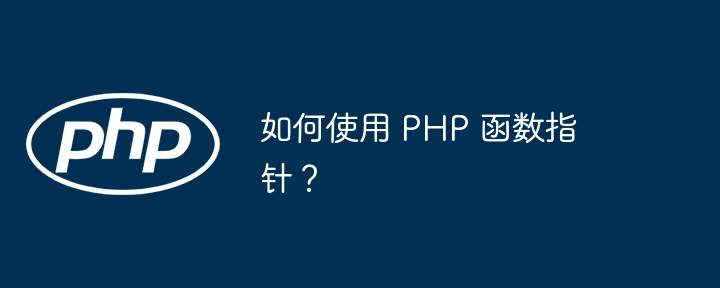
PHP function pointers allow functions to be passed as parameters and can be used to create callback functions or reuse code. Syntax: $functionPointer = function_name; or anonymous function: $functionPointer = function($arg1, $arg2) { ... }; call the function pointer through call_user_func($function, $a, $b), such as applyFunction() function reception function pointer parameter and use call_user_func() to call the function. Note: The function pointer must be a valid function or an anonymous function; it cannot point to a private method; an error will be generated if the function does not exist.

How to use PHP function pointers
Function pointers allow you to pass functions as arguments to other functions. This is useful when you need callback functions or want to create reusable code.
Syntax
$functionPointer = function_name;
You can also use anonymous functions to create function pointers:
$functionPointer = function($arg1, $arg2) { ... };Practical cases
The following is an example of how to use function pointers:
<?php
function multiply($a, $b) {
return $a * $b;
}
function applyFunction($function, $a, $b) {
return call_user_func($function, $a, $b);
}
$result = applyFunction("multiply", 5, 10);
echo $result; // 输出:50
In the above example, the applyFunction() function accepts a function pointer as the first parameter. It uses the call_user_func() function to call the function, passing in the remaining parameters.
Note
The above is the detailed content of How to use PHP function pointers?. For more information, please follow other related articles on the PHP Chinese website!